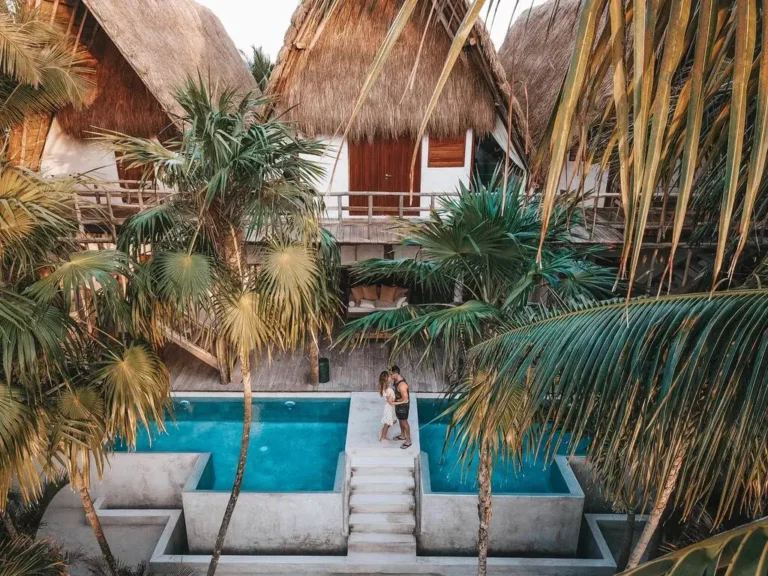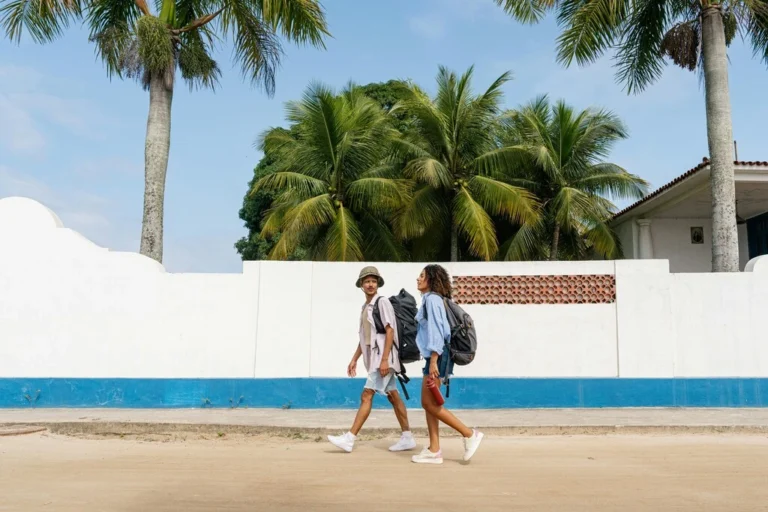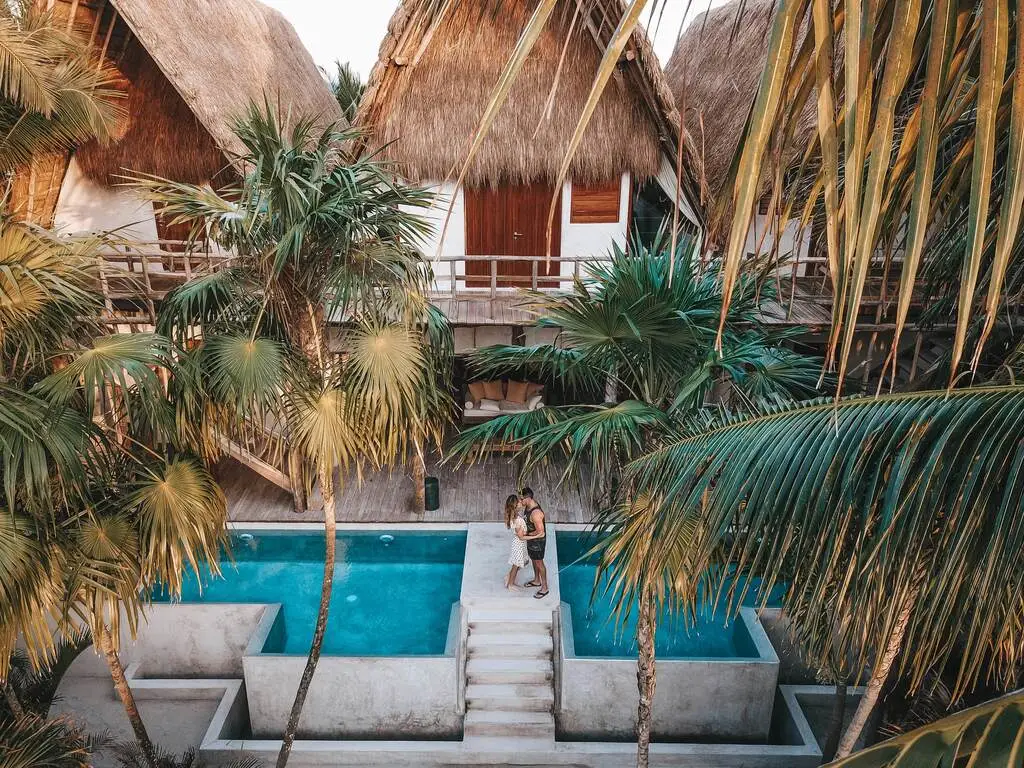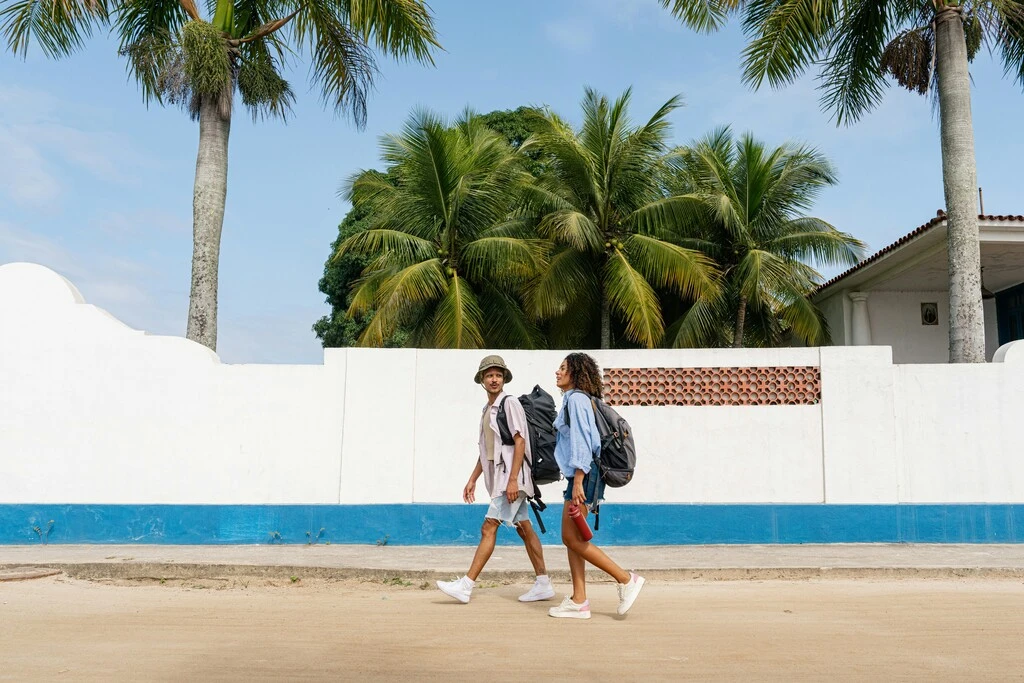Updated in January 2025!
You are looking for your next base as a digital nomad and you like the Mediterranean flair and island feeling? Then, the Malta Digital Nomad Visa, officially called the Malta Nomad Residency Permit, could be for you!
Malta is a tiny slice of paradise nestled in the heart of the Mediterranean, between Sicily and the North African coast. The island country has turned into a magnet for the young and tech-savvy, especially since it burst onto the scene as a gaming industry hotspot.
Sounds like a perfect place for you? Cool! Then, let’s dive into the details.
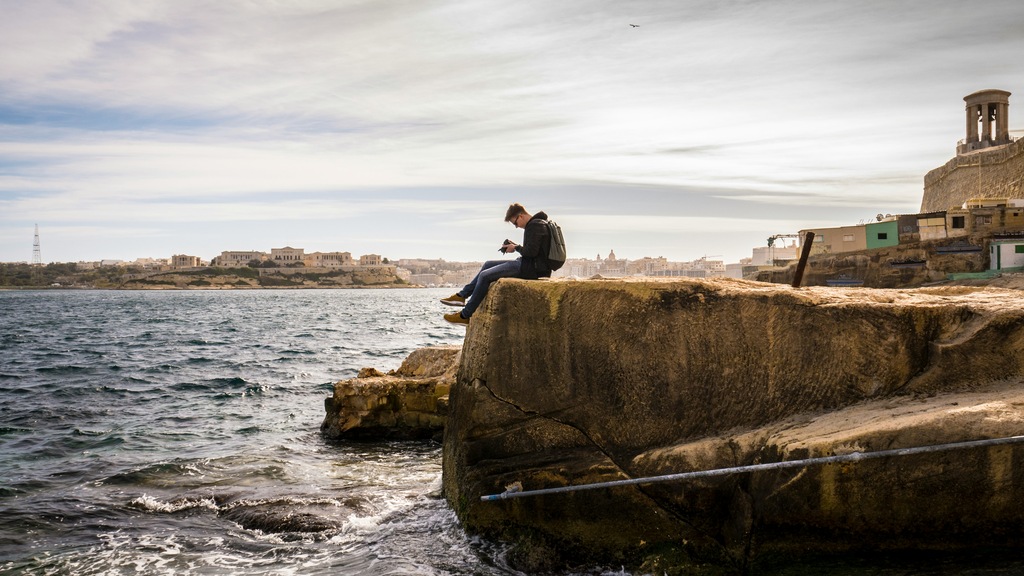
Key Facts of the Digital Nomad Visa Malta
Duration of Visa: 12 months
Extension Possibility: Up to three times for the period of 12 months, this results in a maximum total term of 4 years
Eligibility: Available to non-EU nationals
Income Requirement: Minimum monthly income of €3,500 ($3,750) since April 1st, 2024
Application Processing Time: Up to 2 months
Application Costs: Approx. €300 ($322)
Tax Benefits: Visa does not offer direct tax benefits
Malta Digital Nomad Visa Requirements
- Nationality: Applicants must be non-EU citizens.
- Employment Status: Applicants must be employed by a company that’s registered outside of Malta or be self-employed with clients predominantly based outside of Malta. In detail, that means, to qualify, you must meet one of these three criteria:
- Income Requirements: A minimum gross monthly income of approximately €3,500 ($3,750) is required. This ensures that digital nomads can sustain themselves financially during their stay in Malta.
- Proof of Remote Work: Documentation proving remote employment is necessary. This could include a contract with an employer, registration of a business if self-employed, or contracts with clients for freelancers.
- Health Insurance: Applicants must have comprehensive health insurance coverage that is valid in Malta for the duration of their stay.
- Accommodation: Proof of a rental agreement or similar documentation must be provided to show stable accommodation in Malta. Find out how to find accommodation in Malta.
- Valid Travel Documents: A valid passport with at least three months of validity beyond the intended date of departure from Malta is required.
- Clean Criminal Record: A police conduct certificate indicating no criminal record must be submitted (for all applicants aged 18 and older).
Family Members That Can be Included
When applying for the Malta digital nomad visa, you are allowed to include the following family members in your application:
- Your spouse
- Your minor children
- Adult child who depends on you due to an illness or disability.
- Adult child who is financially dependent on you.
Non-Eligible Nationalities
As of January 2025, Malta restricts applications for the Digital Nomad Visa from individuals connected to certain sanctioned countries. These countries include:
- Afghanistan
- Belarus
- Democratic Republic of Congo
- Iran
- North Korea
- Russia
- Somalia
- South Sudan
- Sudan
- Syria
- Venezuela
- Yemen
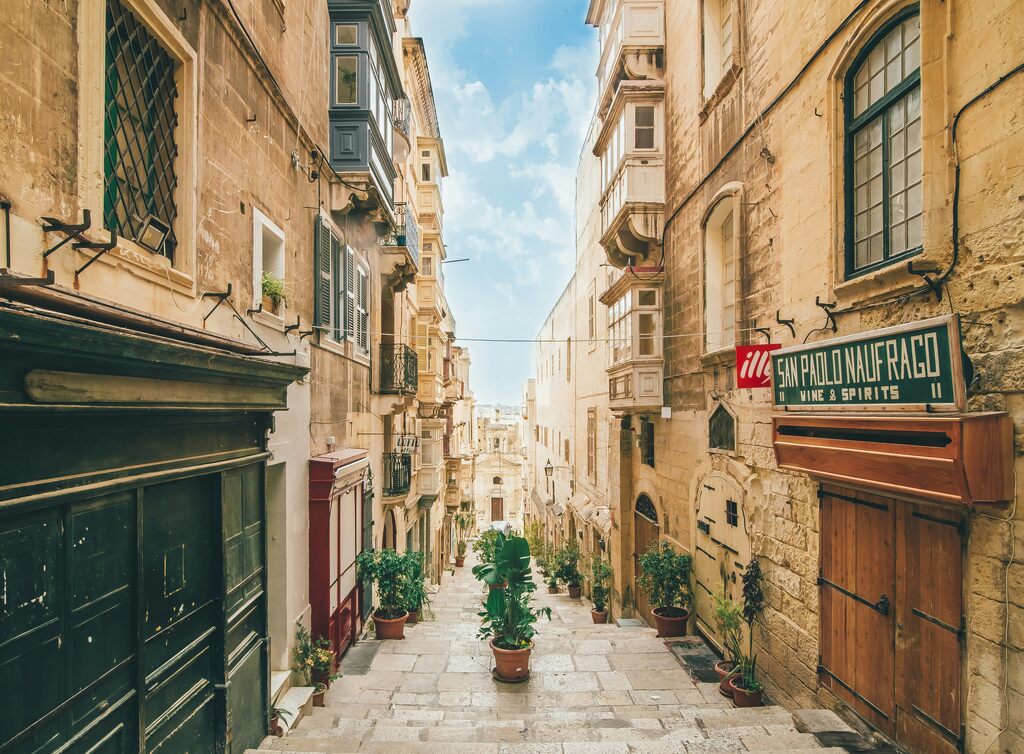
Necessary Documents for the Application
Application Requirements
- Application Form N4: Required for each individual in the application. I explain further below, in the section “Malta Digital Nomad Visa Application Process – 2. Submit your application”, how to find Form N4.
- Consent Forms: For minor dependents, signed by both parents.
- Letter of Intent: A declaration by the main applicant stating reasons for moving to Malta and the intent to apply for the Nomad Residence Permit.
- International Passport: Submit a PDF of all passport pages (including blank ones) for each applicant.
- Curriculum Vitae: Detailing professional and academic history.
- Bank Statement: Last three months’ statements showing income credited directly to the applicant’s accounts.
- Police Conduct Certificate: Required for all applicants aged 18 and over, issued by the competent authorities in the country of origin. Must be original, less than 6 months old, and appropriately certified.
Employment Documentation
- Employed Applicants: Contract showing remote work capability and recent bank statements.
- Self-Employed Applicants: Bank statements, Certificate of Incorporation, and Share Register.
- Freelancers: Service contracts and bank statements showing recent income.
Other Required Documents
- Marriage Certificate: If a spouse is included in the application.
- De Facto Partnership Proof: For unmarried couples together for over two years.
- Birth Certificate: For dependent children.
- Change of Name Document: If applicable.
- Custody/Guardianship Documents: If applicable.
Malta Digital Nomad Visa Application Process
1. Collect Necessary Documents: Review the checklists above to make sure you have gathered all necessary documents.
2. Submit Your Application:
- Create an account at the official government site of the Malta Digital Nomad Visa
- Activate your account, log in, and click on “Nomad Application”
- Choose “Forms & Declarations” and fill out all necessary documents
- Download the completed documents to your laptop
- Open “Nomad Application Submission” and work through steps 1 -6
- Attach all necessary documents
- Follow the provided instructions to make your payment
- Submit your application
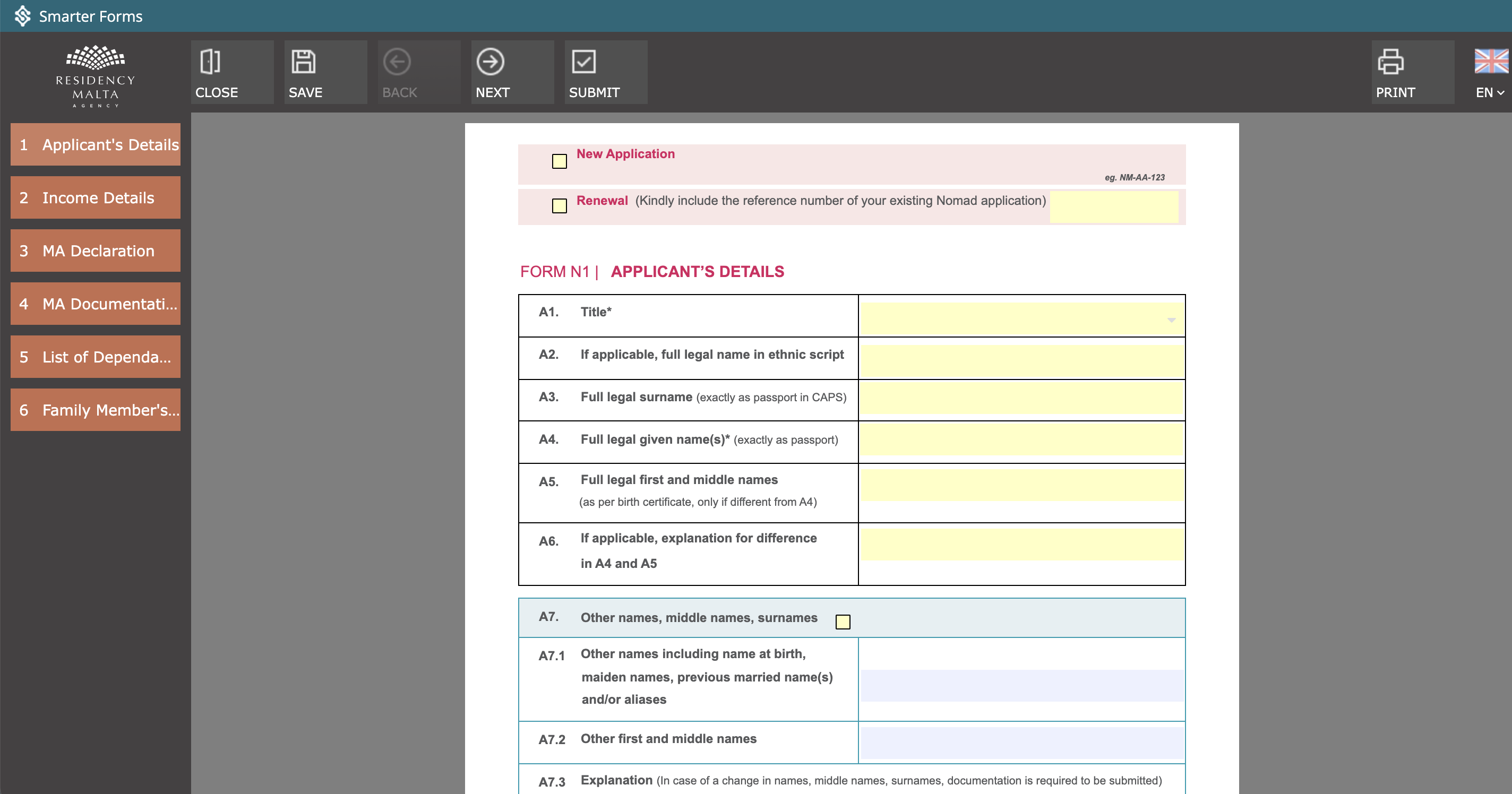
3. Review Process: Once submitted, your application will be reviewed by the Maltese authorities. They will conduct background checks and ensure all information is complete and meets the visa criteria. This process may take several weeks. The exact time can vary depending on the volume of applications and the efficiency of the administrative processes at the time. You will be informed via email once the review is complete.
4. Obtain Your Malta Nomad Residence Permit: If your application is successful, you will be invited to travel to Malta. Please adhere to the guidelines outlined in your approval letter to finalize your application. This will include submitting biometrics and other documents for a residence permit card and paying a state fee of €27.50 ($29.60) per person.
Why Malta is Considered a Tax Haven
Malta is often called a tax haven because it offers some great tax perks. But in my opinion, the term “Tax Haven” does not fit. Here are a few reasons that can still make Malta attractive for tax purposes:
- Low Corporate Taxes: Although the standard corporate tax rate is 35%, foreign shareholders can get big refunds that might lower the effective rate to as low as 5%.
- No Withholding Taxes: Malta doesn’t charge withholding taxes on dividends, interest, or royalties paid to people outside the country, which is great for businesses involved in finance or intellectual property.
- Avoiding Double Taxation: Malta has agreements with over 70 countries to prevent taxing the same income twice, making it easier for those doing business internationally.
- Ideal for Gaming and Finance: Malta’s strong regulations for gaming and financial services attract businesses with low licensing costs and favorable tax rates.
- Some Controversy: Despite being part of the EU, Malta has been criticized for not being fully transparent in its tax practices.
- Malta Digital Nomad Visa: As mentioned above, please note that the digital nomad visa Malta does not offer direct tax benefits.
Why You Should Visit Malta
Malta is an ideal destination for you if you seek a perfect mix of Mediterranean lifestyle, historical richness, and affordable living. Here’s why Malta should be your next remote work base:
Cost of Living: Malta offers a manageable cost of living, especially compared to other European destinations. For example, monthly expenses for a single person, excluding rent, might average around $750 in areas like Sliema, but can be lower in more tranquil places like Gozo. This affordability extends across dining, transportation, and entertainment, making it feasible for longer stays under the Malta digital nomad visa.
Cultural and Historical Richness: With three UNESCO World Heritage Sites including the historic Valletta, the Megalithic Temples, and the Hal Saflieni Hypogeum, Malta offers a deep dive into history at every turn.
Robust Infrastructure: Malta supports a nomadic lifestyle with high-speed internet and an array of co-working spaces, particularly in larger towns like Sliema, Birkirkara, or Saint Paul’s Bay.
Vibrant Local and Expat Communities: The island is home to a dynamic mix of locals and expats, facilitating an engaging social life. Frequent networking events, cultural festivals, and expat meet-ups make it easy to meet new friends and professional contacts. Check out the Facebook “Expats Malta” group.
Language: As one of the two official languages, English is widely spoken across the island, reducing language barriers and making day-to-day interactions and business dealings straightforward for English-speaking digital nomads.
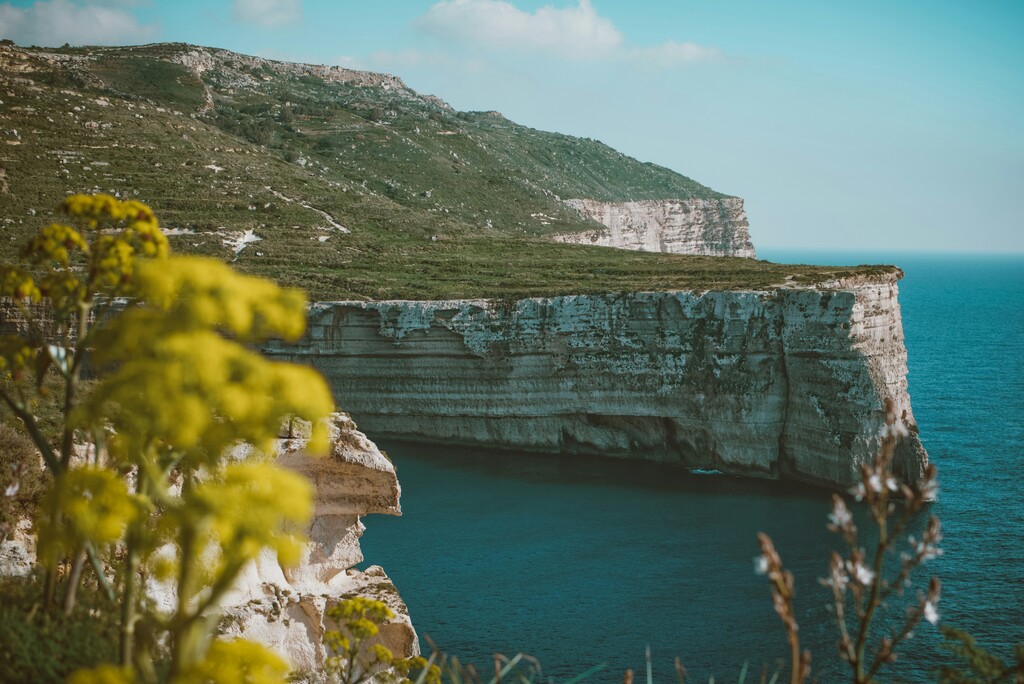
Typical Daily Expenses in Malta
Meals:
- Inexpensive restaurant meal: €8 – €12 ($9 – $14)
- Mid-range restaurant (three-course meal for two): €40 – €60 ($46 – $69)
Transportation:
- One-way ticket (local transport): €1.50 – €2.50 ($1.73 – $2.88)
- Monthly pass (regular price): €26 – €50 ($30 – $58)
Groceries:
- Liter of milk: €0.80 – €1.20 ($0.92 – $1.38)
- Loaf of fresh white bread (500g): €0.90 – €1.50 ($1.04 – $1.73)
- Dozen eggs: €2 – €3 ($2.31 – $3.46)
- Local cheese (1kg): €7 – €12 ($8.08 – $13.85)
- Apples (1kg): €1.50 – €2.50 ($1.73 – $2.88)
- Oranges (1kg): €1.50 – €2.50 ($1.73 – $2.88)
Leisure Activities:
- Fitness club, monthly fee for 1 adult: €30 – €60 ($34.62 – $69.23)
- Cinema, international release, 1 seat: €8 – €12 ($9.23 – $13.85)
What is Maltese Culture Like?
In a nutshell: It’s warm, welcoming, and delightfully eclectic! Here are some cultural highlights you can look forward to:
Coffee and Sea Views: Maltese coffee culture is about savoring the moment. Locals enjoy a light-roasted, slightly spiced coffee and you should too.
Colorful Markets and Festas: Explore the local markets and festas (village feasts) that are central to Maltese culture. Each festa is a vibrant celebration of the village patron saint, featuring fireworks, music, and processions. The Marsaxlokk fish market on Sundays is very popular and offers everything from fresh seafood to traditional Maltese crafts.
A Culinary Journey: Maltese cuisine reflects the islands’ Sicilian and Middle Eastern influences. From the hearty rabbit stew, known as stuffat tal-fenek, to the savory pastizzi (cheese or pea-filled pastries), Maltese food is all about hearty ingredients.
Traditional Luzzu Boats and Seaside Life: The iconic brightly painted luzzu boats symbolize the Maltese fishing tradition and are a joy to behold at any local harbor.
Cultural Diversity: Malta is culturally rich and incredibly diverse. Despite its small size, the island is home to a blend of traditions and cultures, from the annual Isle of MTV music festival to the traditional village feasts.
Architectural Wonders: Malta is popular for its historical architecture, from the grand Baroque cathedrals to the ancient stone-built capital of Mdina. The Megalithic Temples, some of the oldest free-standing structures in the world, offer a window into Malta’s prehistoric past.
Festivities and Public Holidays: Maltese love their festivals and public celebrations. Whether it’s the Malta International Fireworks Festival, Carnival with its colorful floats and costumes, or the numerous religious festivities, there’s always a cause for celebration and community gathering.
Unmatched Hospitality: True to the Mediterranean spirit, Maltese hospitality is second to none. Visitors are often struck by the friendliness and generosity of the local people, who are quick to offer a smile, a helping hand, or an invitation to join them at the table for a meal.
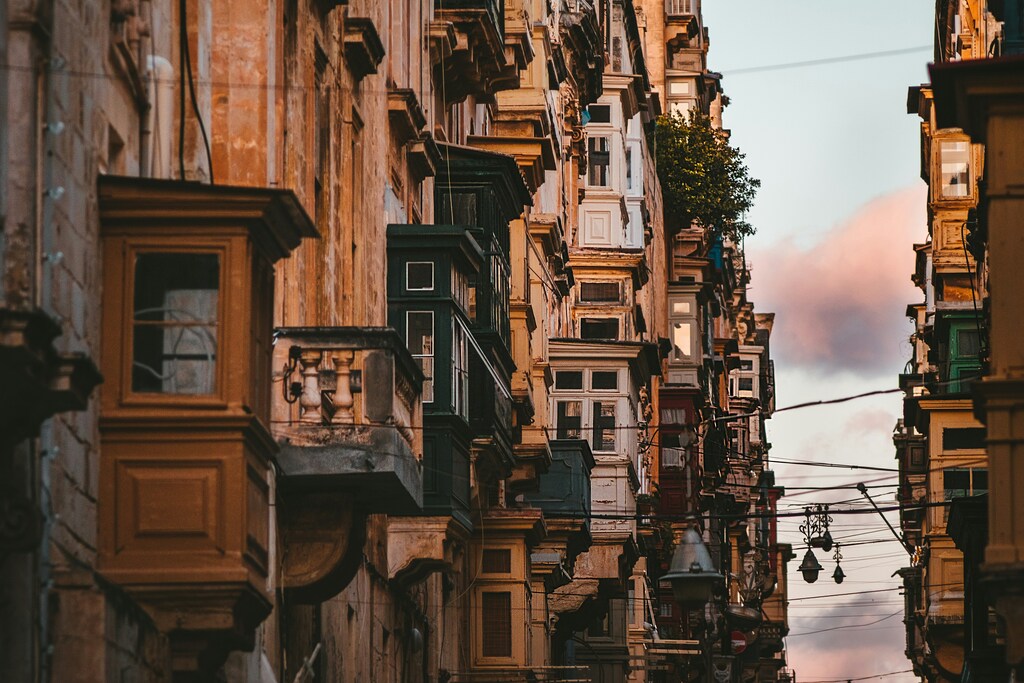
The Best Spots to Stay in Malta
Valletta
Dive into the heart of Malta by staying in Valletta, its capital city. Despite its compact size of just 0.8 square miles, Valletta is a UNESCO World Heritage site packed with over 320 monuments. It’s a city where stylish hotels meet centuries-old buildings. You’ll find accommodations for every taste and budget, nestled among cafes and boutiques.
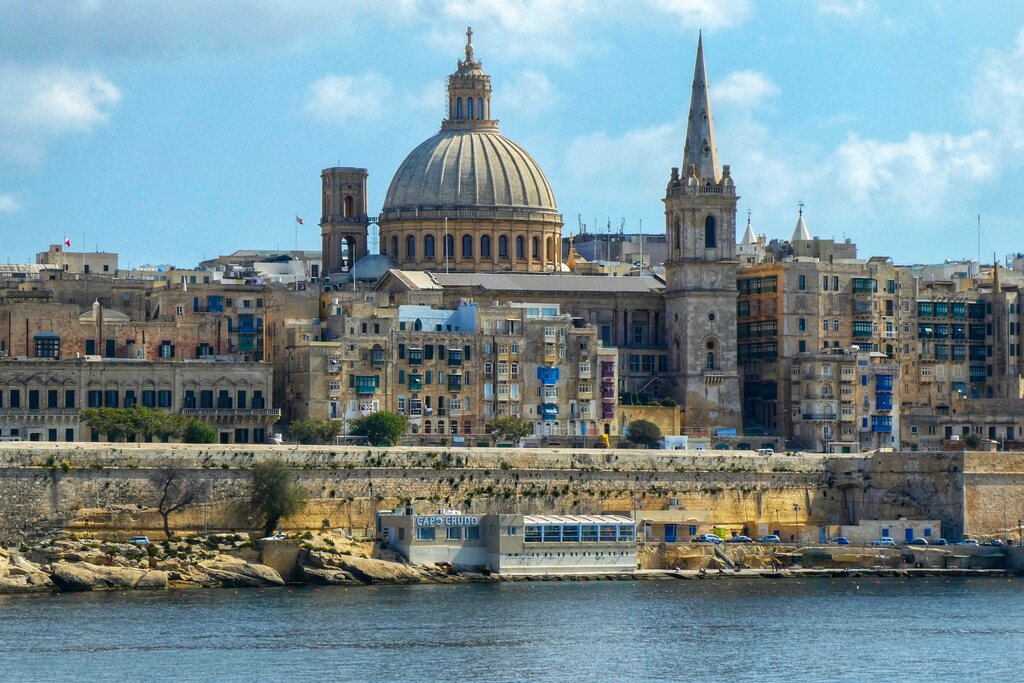
Gozo
For a slower pace, head over to Gozo, Malta’s second-largest island at 26 square miles. It’s home to around 32,000 residents and offers a tranquil retreat with its rustic landscapes and traditional farmhouses, now transformed into luxurious accommodations. It’s great for active nature lovers, with over 50 kilometers of hiking trails.
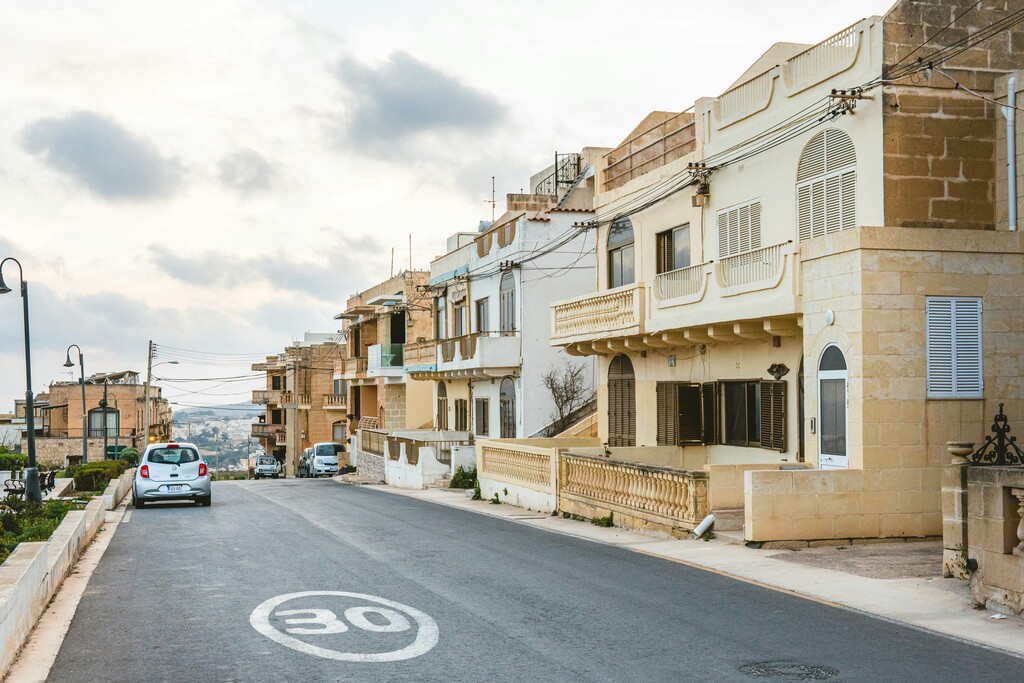
Sliema and St. Julian’s
These neighboring towns are the heart of Malta’s nightlife and social scene. Sliema, with its 3-kilometer-long promenade, offers views of Valletta and a vibrant shopping scene. St. Julian’s is the hub of nightlife with over 150 bars and clubs. Both areas offer a range of dining and entertainment options, making them perfect for those who love a lively atmosphere.
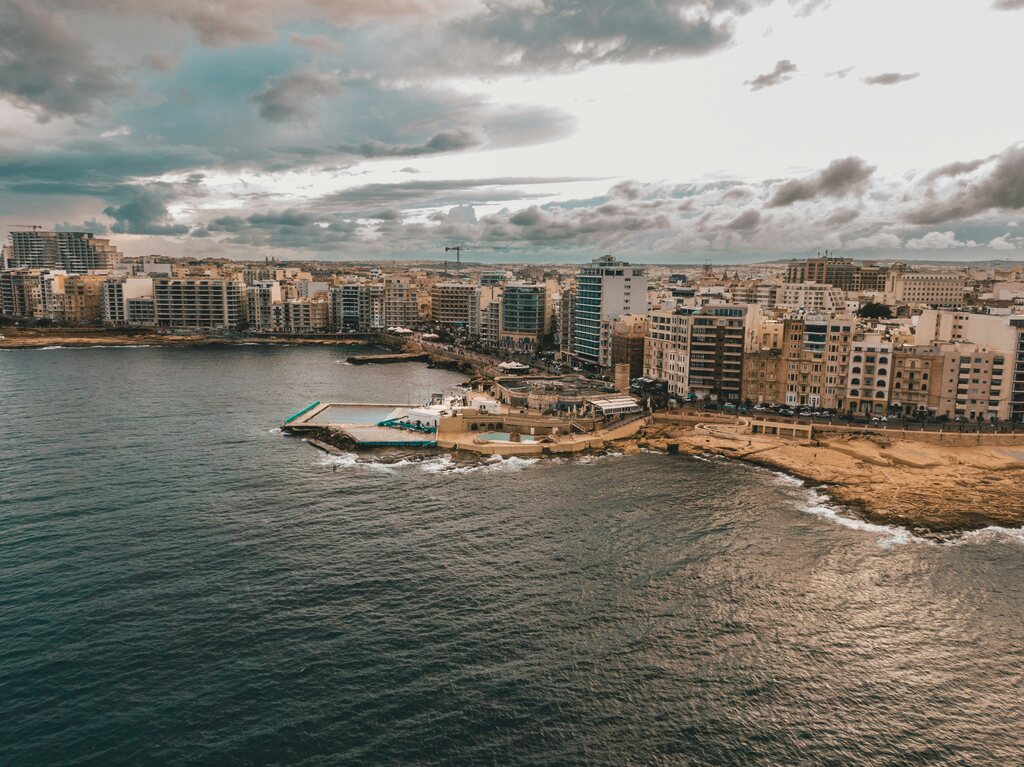
Mellieha
Famous for its beaches, Mellieha hosts Malta’s largest sandy beach, Mellieha Bay, which stretches over 800 meters. It’s a favorite for families and sun-seekers, with a variety of water sports available. The area offers a range of accommodations, from luxury resorts to holiday villas.
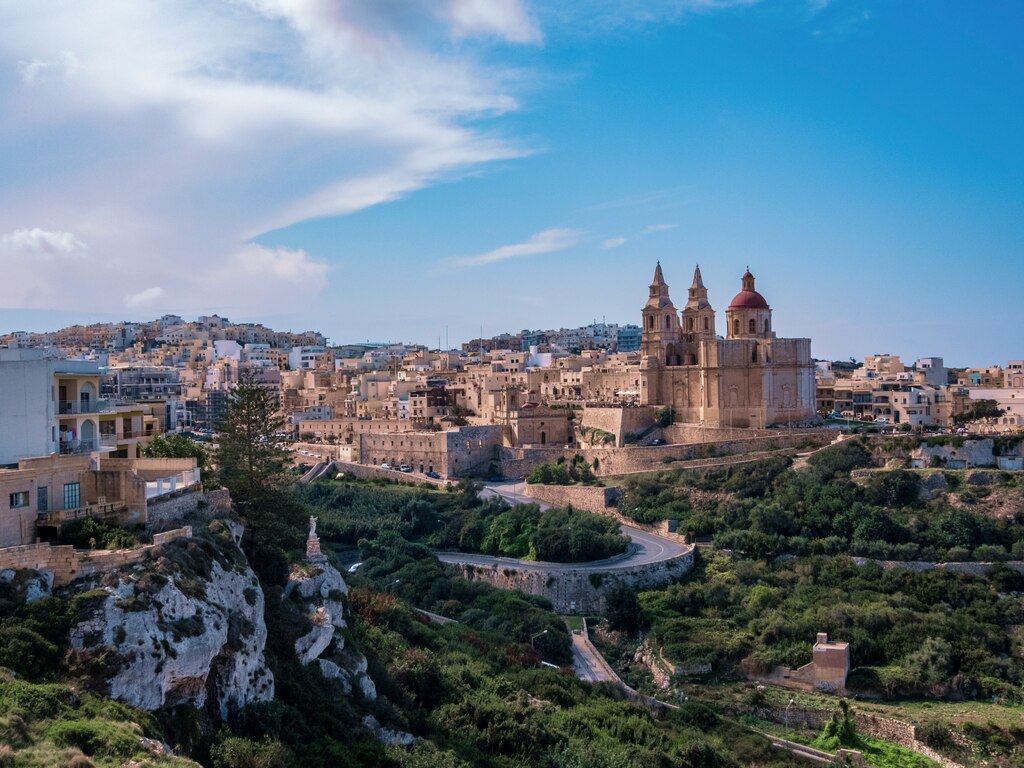
Mdina
Step into the ‘Silent City’ of Mdina, Malta’s old capital. This walled city, dating back over 4,000 years, is home to fewer than 300 residents. Walking through Mdina is like walking through a living museum, untouched by modernity. It offers unique boutique accommodations that give a feel of medieval times, ideal for those interested in Malta’s rich history.
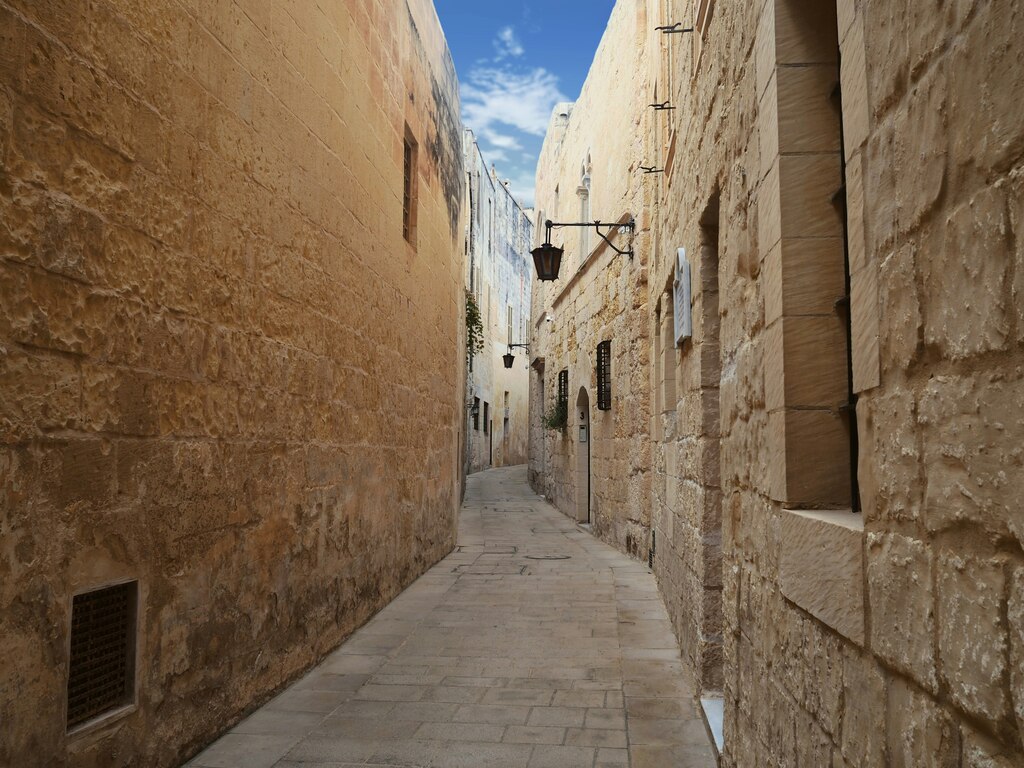
Essential Resources for Digital Nomads Living in Malta
Here are some essential links and resources to help you plan your move to Malta:
Living in Malta:
Visit Malta – Living in Malta:
- Website: Visit Malta – Living
- Comprehensive guide on life in Malta, including accommodation, healthcare, and education.
Malta Public Transport:
- Website: Malta Public Transport
- Information on bus routes, schedules, and fares.
Health Malta:
- Website: Health Malta
- Details on healthcare services, hospitals, and health centers in Malta.
-
Expat and Community Resources:
Internations Malta:
- Website: Internations
- A community platform for expats living in Malta to network and share experiences.
Expat Arrivals – Malta:
- Website: Expat Arrivals
- Guide for expats moving to Malta, covering topics like housing, schooling, and culture.
Banking and Financial Services:
Bank of Valletta:
- Website: Bank of Valletta
- Information on opening bank accounts, mortgages, and other financial services.
HSBC Malta:
- Website: HSBC Malta
- Banking services for individuals and businesses.
Community and Social Life:
Meetup – Malta:
- Website: Meetup Malta
- Find and join local groups and events to connect with the community.
Conclusion on the Digital Nomad Visa Malta
The digital nomad visa Malta is definitely one of the most attractive digital nomad visas. Because once you have completed the admittedly somewhat extensive application process, it is all the easier to implement the annual extensions. And even if the visa does not offer any direct tax benefits, Malta is a low-cost destination and, under certain circumstances, you can still save on taxes. Check out how you can benefit most taxwise with Denationalize. We have personally used Christoph Heuermann’s service for years. Good luck and safe travels!
Did you like this article about the digital nomad visa Malta? Do you plan to visit Malta? Please let me know in the comments!
Thank you for reading and for making me part of your day! Yours, Lulu
Just a heads up: some links on Nomadmum.com are affiliate links. This means if you click and buy, I might earn a small commission at no extra cost to you.


